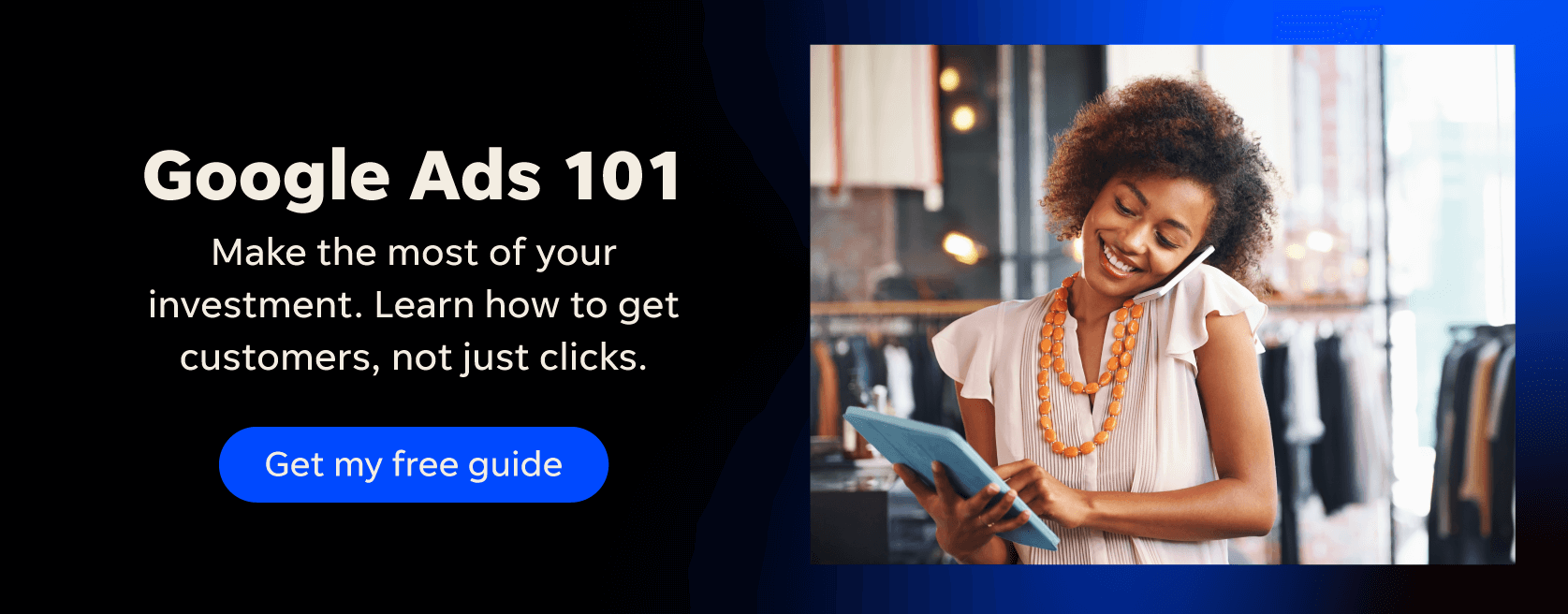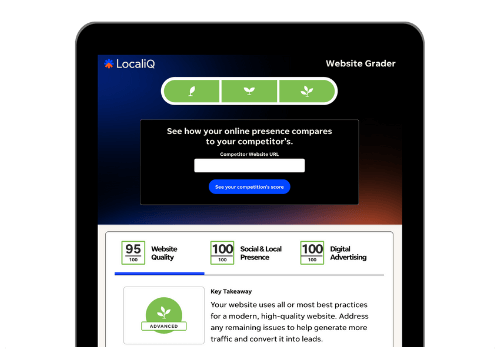You’ve heard the age-old question: If a tree falls in the forest but nobody is around to hear it, does it really make a sound?

The same could be said for your business online: If you invest in a web presence but nobody finds your business, does your web presence even exist?
If you want your business to exist online, digital marketing is your best bet. And some of the best digital marketing strategies help you get seen by people where they’re starting most of their searches for new businesses – on search engines like Google and Bing.
When it comes to getting seen on search engine results pages, there are both paid and “free” (also known as organic) options to explore in the form of PPC, or pay per click advertising, and SEO, or search engine optimization.
Many experts might say that you need one or the other – SEO versus PPC.
But, the reality is that you need both. Here, we’ll get into the SEO versus PPC debate to understand what each strategy is, how it works, and how SEO and PPC can work together to help you get even more customers and build your web presence.
What Is SEO?
To truly understand the SEO vs. PPC debacle, let’s first chat about SEO.
SEO stands for search engine optimization and is the practice of optimizing your web presence, including your website and offsite factors, to help you rank organically on Google and other search engines for relevant searches.
For example, if you’re a vet in Columbus, OH, you want your site to rank for a search like “vet near Columbus.”

Organic is another word for “unpaid,” so these are the results that show beneath paid search results on Google and can include the Google 3-pack results, featured snippets, and the rest of the organic results listed on the page.
Search engines use an algorithm that takes a lot of factors into consideration (we’re talking hundreds) when determining which search results to show for specific queries. With SEO, you’re optimizing for those factors so you can show up for relevant searches.
SEO entails both onsite optimizations — including the content on your site and the backend structure of your site – as well as offsite SEO factors like your listings, reviews, and social media sites.
Why SEO? 6 Benefits
SEO is a beneficial marketing strategy for a number of key reasons. Here are six benefits of SEO:
SEO Increases Your Brand’s Credibility
The higher you rank on search engines like Google, and the more often searchers can see you, the more credible your business seems. This is because people trust that Google and other search engines are providing them with the best results for their searches — which is partly why many searchers don’t go past the first page of Google.
SEO Is Free(ish)
You may spend some dough by partnering with an SEO agency to optimize your website to be easily searchable but you won’t be paying for the number of visits you receive or ongoing traffic as a result of your SEO efforts.
SEO Promotes Better Site Usability
In order to have better SEO results, your website needs to be in great shape, which is why SEO and website design go hand-in-hand. So, you basically get a two-for-one with SEO because optimizing your website for search engines enables it to become more user-friendly and easier to navigate with more readable and keyword-rich content.

SEO Leads to Higher Conversion Rates
Site traffic generated via organic searches translates into higher conversion rates for most sites. Why? Because in order to rank in search results for queries, your site and your content has to be relevant to that search.
SEO Has Sustained Success
Once you invest in an SEO strategy, it can take anywhere from three to nine months to start seeing success. But, that success is long-lasting because you’re putting in work to optimize the foundation of your website and your web presence and then continuing to build off that foundation with additional strategies.
So, it could take three months to start seeing some of your pages rank on Google, but you can continue ranking with minimal effort for many more months.
SEO Success is Self-Perpetuating
Once you start to rank high on search engines, it’s easier to continue ranking high and for other pages you publish to improve their rank. The better your rank, the more traffic you get, and the more traffic you get, the better your rank.
Related: See how your online presence stacks up with our website grader.
What Is PPC?
Next up, let’s talk about PPC.
PPC, as we discussed, stands for pay per click. This is because, with PPC, you only pay when someone clicks on your ad within search engines. PPC advertising goes by many other names including search advertising, paid search, search engine marketing (SEM) and more.
Related: We discuss the differences between SEO vs SEM here.
The basis of all paid advertising on search engines is creating an ad campaign, identifying the specific keywords you’d like to appear for, and then bidding on those keywords to get your ad displayed in those results.
PPC ads typically show at the top of the search results page and can also appear in Google’s 3-pack.

Note that you can also optimize your PPC to get more clicks at a lower cost.
Why PPC? 5 Benefits
There’s a reason so many businesses run PPC campaigns. It’s a highly successful marketing strategy for a lot of reasons.
Here are five key benefits of PPC advertising:
PPC Gets You on Top of Results
Unlike organic search results, PPC ads are the first results searchers see for most queries. This gets your business seen first, increasing the chances that people are going to see your business information and click your ad before they scroll down to organic results.
PPC Has a Controllable Cost
Although PPC costs money, you’re completely in control of how much it costs. Your PPC cost will never exceed the budget you set at the beginning of your campaign, so you always know how much you’ll be spending for your PPC.
PPC Gives Quick Results
Unlike SEO, you may begin to see positive results incredibly fast with PPC advertising. While a blog post might take some time to climb to the first page, your paid result can appear in an instant.
PPC Is Highly Targeted
PPC allows you to dictate where and when your ads will appear, ensuring you get in front of your primary target audience. This gives you some control over who is seeing – and clicking – on your ads to contribute to your overall ROI.
PPC Is Easily Measured
Most PPC platforms include some sort of analytics to gauge the success of your campaign. Information like clicks, site visits, and costs are at your fingertips and can help you decide if you’re spending your marketing funds wisely. We cover the PPC metrics you need to measure here.

3 Ways SEO & PPC Work Together
Now that you understand the differences between SEO and PPC plus the benefits of each, let’s talk now about why the conversation shouldn’t be SEO versus PPC but rather SEO plus PPC.
Here are three huge ways SEO and PPC work together to help your business:
A Combined SEO + PPC Strategy Boosts Results
We already know that running a marketing strategy that encompasses multiple tactics is your best bet at reaching consumers across the web. So it’s no surprise that running SEO and PPC together can boost your results.
Research has found that even for businesses at the top of organic results, running PPC means more clicks. And, according to a report from Bing, businesses that were running a PPC campaign saw a 31% increase in the number of clicks over companies solely relying on organic techniques.
An SEO + PPC Strategy Gives You More Chances of Getting Seen
As mobile search becomes more popular, organic results are getting forced further and further down the small screen’s page. PPC gives you more real estate on the page so you have a better chance of attracting searchers to your site.
But that doesn’t mean you can discount organic results, either. In desktop or tablet search results, Google My Business listings appear on the right-hand side of search results and also impact how you appear in Google Maps results. Plus, Google often uses information pulled from websites to flesh out its featured snippets.

After searching “leaky faucet repair Columbus,” I received this featured snippet as a result.
Running a combined strategy that includes both PPC and SEO gives you a better chance of appearing multiple times on a single search results page for relevant searches.
Running SEO + PPC Gives You More Marketing Data
You can use the data and insights you gather from one tactic to help with the other. For example, we worked with a client who started to see excellent organic traffic coming to his website from a neighboring town. He wasn’t running any advertising to target them because he didn’t think they would drive to his location. But, because he was able to see this organic traffic from a solid SEO strategy, he created an additional SEM campaign to target searches in this area and grew his business.
You might not always be able to see results like that, but if you’re working on a combined approach, there are opportunities to execute on trends that you’re seeing from your campaigns based on the comprehensive marketing data you’re able to collect from each strategy.
Throw Out the SEO Vs. PPC Debate & Get Started with Both
PPC and SEO are two separate elements of marketing, but they shouldn’t be thought of as siloed efforts. Instead, bringing SEO and PPC together is a great way to garner attention for your business and generate leads. Whether you’re just getting your website off the ground or you’ve been online for decades, there’s a place for both SEO and PPC in your marketing efforts.
Related Articles
-

Google Local Services Ads 101: Everything You Need to Know
-

Updated Search Advertising Benchmarks for 2024 (+Expert Tips to Improve Results)
-

Essential Beginner's Guide to Local PPC
-

9 Reasons Your Google Ads Are Failing (Exclusive Expert Insights!)
-

How Much Does Google Ads Cost in 2024? (+Tips to Lower Costs)


